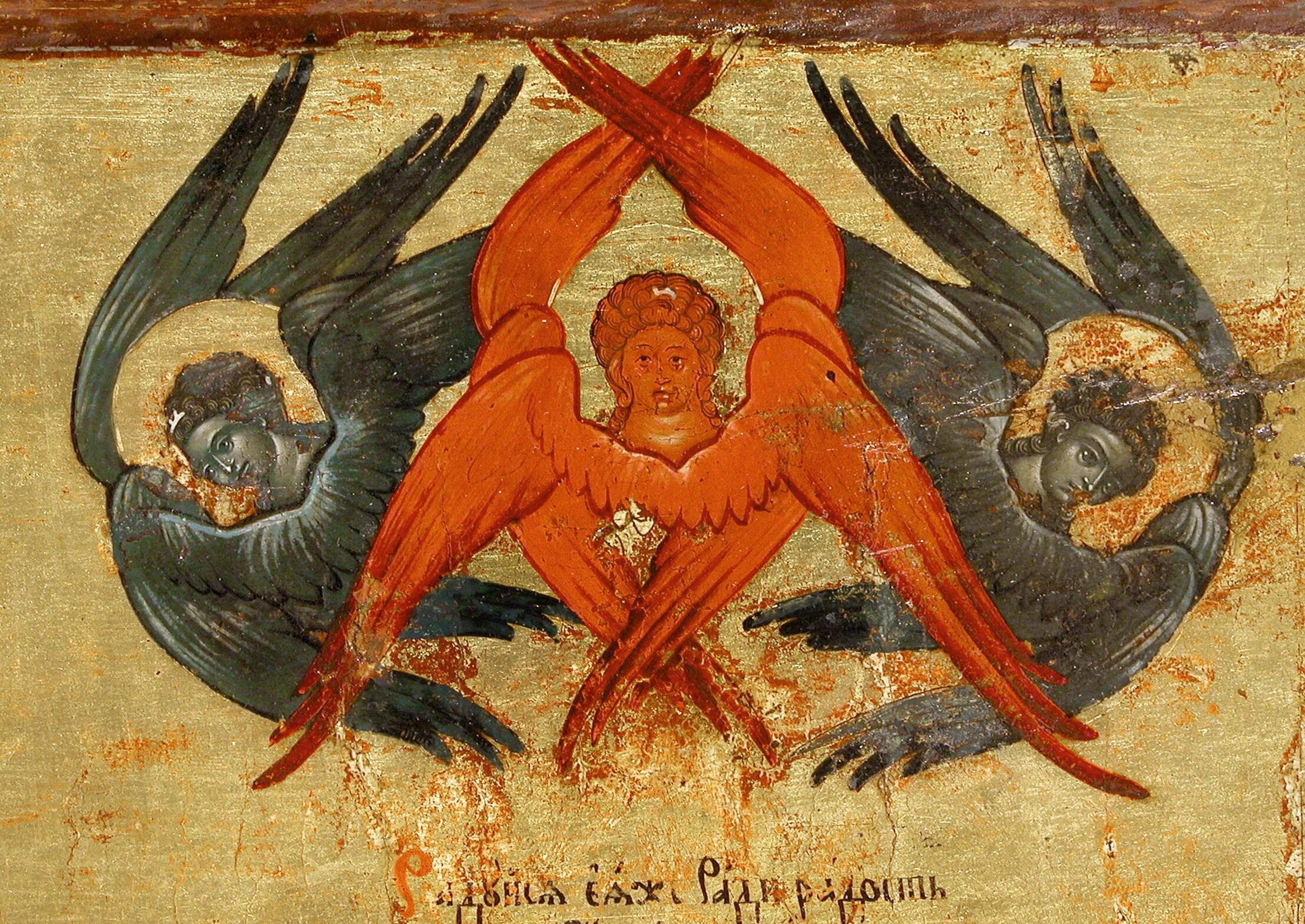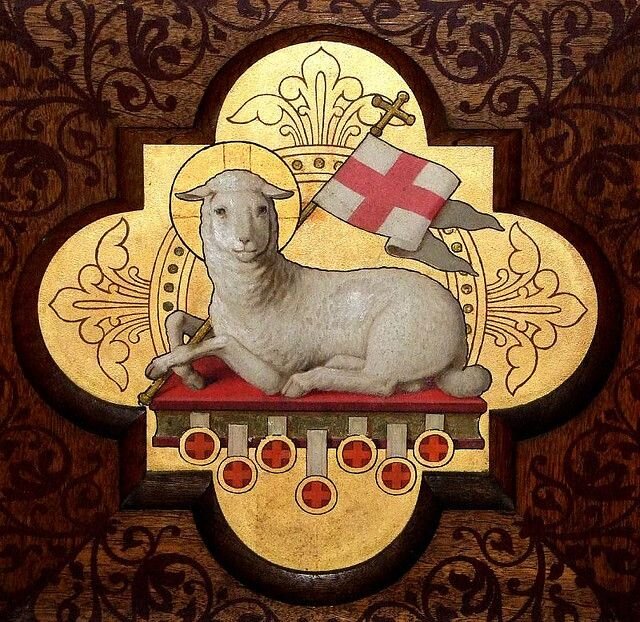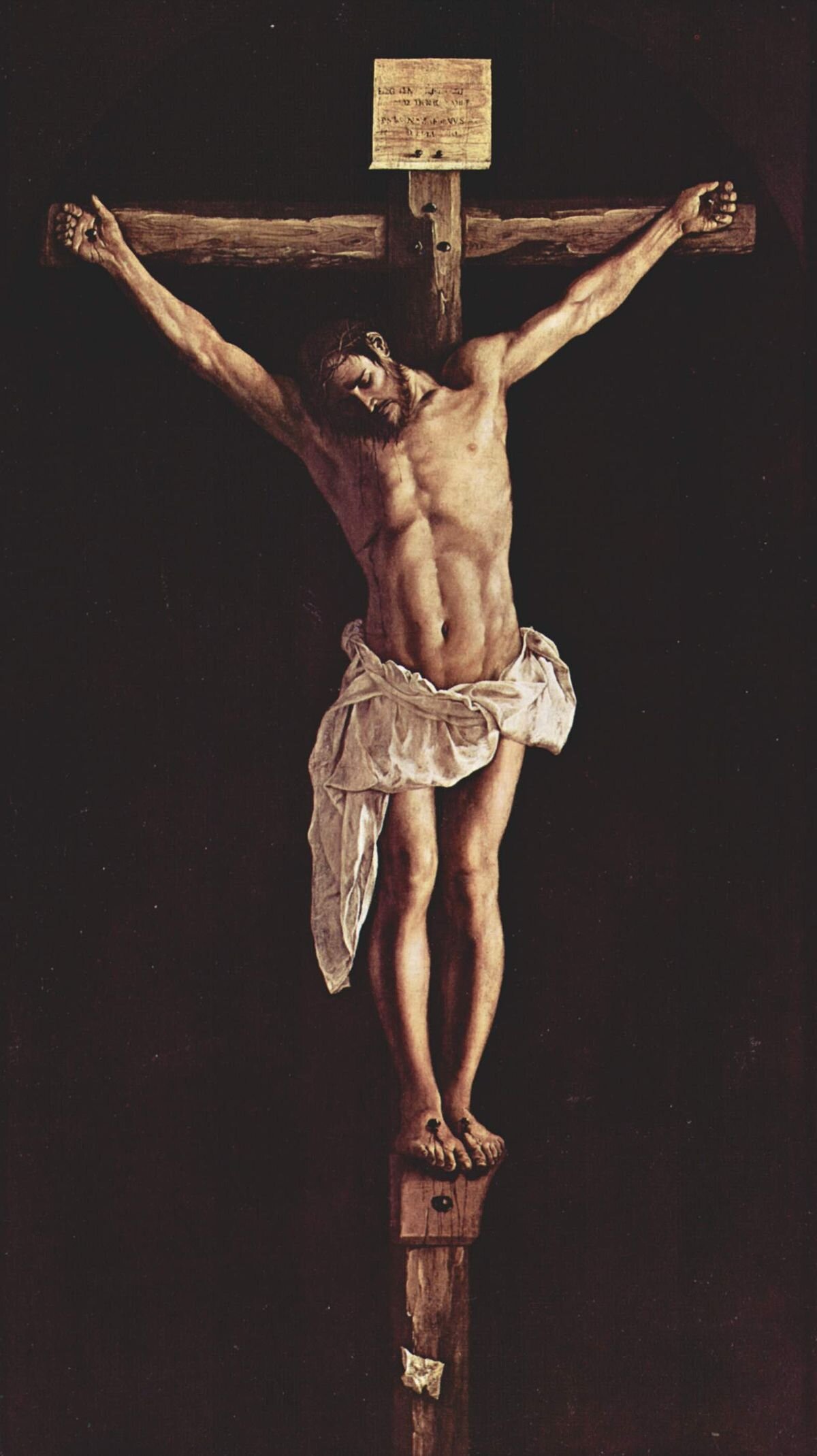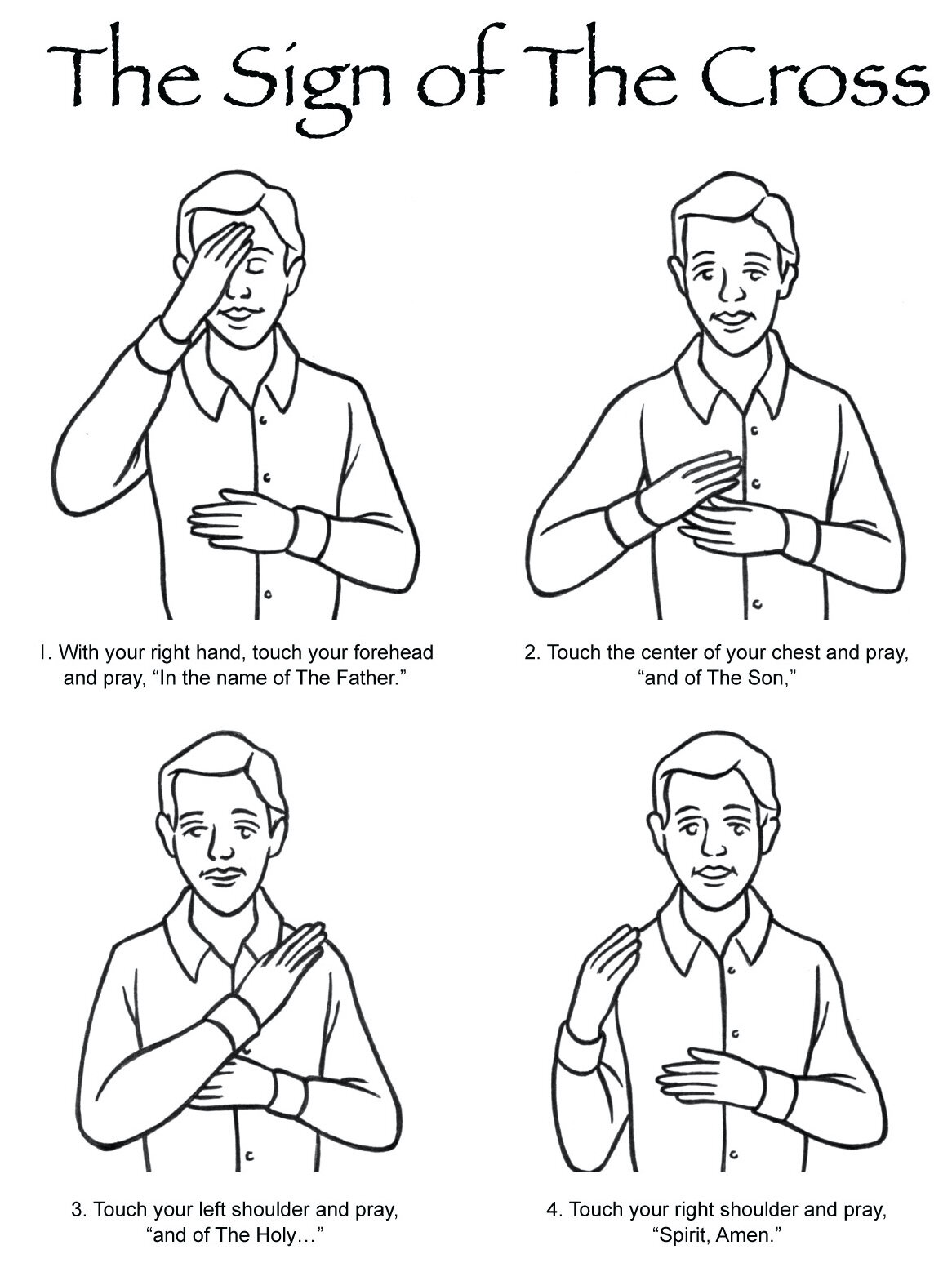Wherefore putting away all filthiness, and all guile, and evil speaking, etc.
By the loving-kindness of God you have heard sufficiently at our former meetings concerning Baptism, and Chrism, and partaking of the Body and Blood of Christ; and now it is necessary to pass on to what is next in order, meaning today to set the crown on the spiritual building of your edification.
You have seen then the Deacon who gives to the Priest water to wash, and to the Presbyters who stand round God’s altar. He gave it not at all because of bodily defilement; it is not that; for we did not enter the Church at first with defiled bodies. But the washing of hands is a symbol that you ought to be pure from all sinful and unlawful deeds; for since the hands are a symbol of action, by washing them, it is evident, we represent the purity and blamelessness of our conduct. Did you not hear the blessed David opening this very mystery, and saying, I will wash my hands in innocency, and so will compass Your Altar, O Lord? The washing therefore of hands is a symbol of immunity from sin.
Then the Deacon cries aloud, Receive ye one another; and let us kiss one another. Think not that this kiss is of the same character with those given in public by common friends. It is not such: but this kiss blends souls one with another, and courts entire forgiveness for them. The kiss therefore is the sign that our souls are mingled together, and banish all remembrance of wrongs. For this cause Christ said, If you are offering your gift at the altar, and there rememberest that your brother has anything against time, leave there your gift upon the altar, and go your way; first be reconciled to your brother, and then come and offer your gift. The kiss therefore is reconciliation, and for this reason holy: as the blessed Paul somewhere cried, saying, Greet ye one another with a holy kiss; and Peter, with a kiss of charity.
After this the Priest cries aloud, Lift up your hearts. For truly ought we in that most awful hour to have our heart on high with God, and not below, thinking of earth and earthly things. In effect therefore the Priest bids all in that hour to dismiss all cares of this life, or household anxieties, and to have their heart in heaven with the merciful God. Then ye answer, We lift them up unto the Lord: assenting to it, by your avowal. But let no one come here, who could say with his mouth, We lift up our hearts unto the Lord, but in his thoughts have his mind concerned with the cares of this life. At all times, rather, God should be in our memory but if this is impossible by reason of human infirmity, in that hour above all this should be our earnest endeavour.
Then the Priest says, Let us give thanks unto the Lord. For verily we are bound to give thanks, that He called us, unworthy as we were, to so great grace; that He reconciled us when we were His foes; that He vouchsafed to us the Spirit of adoption. Then ye say, It is meet and right: for in giving thanks we do a meet thing and a right; but He did not right, but more than right, in doing us good, and counting us meet for such great benefits.
After this, we make mention of heaven, and earth, and sea ; of sun and moon; of stars and all the creation, rational and irrational, visible and invisible; of Angels, Archangels, Virtues, Dominions, Principalities, Powers, Thrones; of the Cherubim with many faces: in effect repeating that call of David’s Magnify the Lord with me. We make mention also of the Seraphim, whom Esaias in the Holy Spirit saw standing around the throne of God, and with two of their wings veiling their face, and with two their feet, while with two they did fly, crying Holy, Holy, Holy, is the Lord of Sabaoth. For the reason of our reciting this confession of God, delivered down to us from the Seraphim, is this, that so we may be partakers with the hosts of the world above in their Hymn of praise.
Then having sanctified ourselves by these spiritual Hymns, we beseech the merciful God to send forth His Holy Spirit upon the gifts lying before Him; that He may make the Bread the Body of Christ, and the Wine the Blood of Christ; for whatsoever the Holy Ghost has touched, is surely sanctified and changed.
Then, after the spiritual sacrifice, the bloodless service, is completed, over that sacrifice of propitiation we entreat God for the common peace of the Churches, for the welfare of the world; for kings; for soldiers and allies; for the sick; for the afflicted; and, in a word, for all who stand in need of succour we all pray and offer this sacrifice.
Then we commemorate also those who have fallen asleep before us, first Patriarchs, Prophets, Apostles, Martyrs, that at their prayers and intercessions God would receive our petition. Then on behalf also of the Holy Fathers and Bishops who have fallen asleep before us, and in a word of all who in past years have fallen asleep among us, believing that it will be a very great benefit to the souls , for whom the supplication is put up, while that holy and most awful sacrifice is set forth.
And I wish to persuade you by an illustration. For I know that many say, what is a soul profited, which departs from this world either with sins, or without sins, if it be commemorated in the prayer? For if a king were to banish certain who had given him offense, and then those who belong to them should weave a crown and offer it to him on behalf of those under punishment, would he not grant a remission of their penalties? In the same way we, when we offer to Him our supplications for those who have fallen asleep, though they be sinners, weave no crown, but offer up Christ sacrificed for our sins, propitiating our merciful God for them as well as for ourselves.
Then, after these things, we say that Prayer which the Saviour delivered to His own disciples, with a pure conscience entitling God our Father, and saying, Our Father, which art in heaven. O most surpassing loving-kindness of God! On them who revolted from Him and were in the very extreme of misery has He bestowed such a complete forgiveness of evil deeds, and so great participation of grace, as that they should even call Him Father. Our Father, which art in heaven; and they also are a heaven who bear the image of the heavenly, in whom is God, dwelling and walking in them.
Hallowed be Your Name. The Name of God is in its nature holy, whether we say so or not; but since it is sometimes profaned among sinners, according to the words, Through you My Name is continually blasphemed among the Gentiles, we pray that in us God’s Name may be hallowed; not that it comes to be holy from not being holy, but because it becomes holy in us, when we are made holy, and do things worthy of holiness.
Your kingdom come. A pure soul can say with boldness, Your kingdom come; for he who has heard Paul saying, Let not therefore sin reign in your mortal body, and has cleansed himself in deed, and thought, and word, will say to God, Your kingdom come.
Your will be done as in heaven so on earth. God’s divine and blessed Angels do the will of God, as David said in the Psalm, Bless the Lord, all you Angels of His, mighty in strength, that do His pleasure. So then in effect you mean this by your prayer, as in the Angels Your will is done, so likewise be it done on earth in me, O Lord.
Give us this day our substantial bread. This common bread is not substantial bread, but this Holy Bread is substantial, that is, appointed for the substance of the soul. For this Bread goes not into the belly and is cast out into the draught, but is distributed into your whole system for the benefit of body and soul. But by this day, he means, each day, as also Paul said, While it is called today.
And forgive us our debts as we also forgive our debtors. For we have many sins. For we offend both in word and in thought, and very many things we do worthy of condemnation; and if we say that we have no sin, we lie, as John says. And we make a covenant with God, entreating Him to forgive us our sins, as we also forgive our neighbours their debts. Considering then what we receive and in return for what, let us not put off nor delay to forgive one another. The offenses committed against us are slight and trivial, and easily settled; but those which we have committed against God are great, and need such mercy as His only is. Take heed therefore, lest for the slight and trivial sins against you, you shut out for yourself forgiveness from God for your very grievous sins.
And lead us not into temptation, O Lord. Is this then what the Lord teaches us to pray, that we may not be tempted at all? How then is it said elsewhere, a man untempted, is a man unproved; and again, My brethren, count it all joy when you fall into various temptations? But does perchance the entering into temptation mean the being overwhelmed by the temptation? For temptation is, as it were, like a winter torrent difficult to cross. Those therefore who are not overwhelmed in temptations, pass through, showing themselves excellent swimmers, and not being swept away by them at all; while those who are not such, enter into them and are overwhelmed. As for example, Judas having entered into the temptation of the love of money, swam not through it, but was overwhelmed and was strangled both in body and spirit. Peter entered into the temptation of the denial; but having entered, he was not overwhelmed by it, but manfully swam through it, and was delivered from the temptation. Listen again, in another place, to a company of unscathed saints, giving thanks for deliverance from temptation, You, O God hast proved us; You have tried us by fire like as silver is tried. You brought us into the net; You laid afflictions upon our loins. You have caused men to ride over our heads; we went through fire and water; and you brought us out into a place of rest. You see them speaking boldly in regard to their having passed through and not been pierced. But You brought us out into a place of rest; now their coming into a place of rest is their being delivered from temptation.
But deliver us from the evil. If Lead us not into temptation implied the not being tempted at all, He would not have said, But deliver us from the evil. Now evil is our adversary the devil, from whom we pray to be delivered. Then after completing the prayer you say Amen; by this Amen, which means So be it, setting your seal to the petitions of the divinely-taught prayer.
After this the Priest says, Holy things to holy men. Holy are the gifts presented, having received the visitation of the Holy Ghost; holy are you also, having been deemed worthy of the Holy Ghost; the holy things therefore correspond to the holy persons. Then ye say, One is Holy, One is the Lord, Jesus Christ. For One is truly holy, by nature holy; we too are holy, but not by nature, only by participation, and discipline, and prayer.
After this ye hear the chanter inviting you with a sacred melody to the communion of the Holy Mysteries, and saying, O taste and see that the Lord is good. Trust not the judgment to your bodily palate no, but to faith unfaltering; for they who taste are bidden to taste, not bread and wine, but the anti-typical Body and Blood of Christ.
In approaching therefore, come not with your wrists extended, or your fingers spread; but make your left hand a throne for the right, as for that which is to receive a King. And having hollowed your palm, receive the Body of Christ, saying over it, Amen. So then after having carefully hallowed your eyes by the touch of the Holy Body, partake of it; giving heed lest you lose any portion thereof; for whatever you lose, is evidently a loss to you as it were from one of your own members. For tell me, if any one gave you grains of gold, would you not hold them with all carefulness, being on your guard against losing any of them, and suffering loss? Will you not then much more carefully keep watch, that not a crumb fall from you of what is more precious than gold and precious stones?
Then after you have partaken of the Body of Christ, draw near also to the Cup of His Blood; not stretching forth your hands, but bending, and saying with an air of worship and reverence, Amen, hallow yourself by partaking also of the Blood of Christ. And while the moisture is still upon your lips, touch it with your hands, and hallow your eyes and brow and the other organs of sense. Then wait for the prayer, and give thanks unto God, who has accounted you worthy of so great mysteries.
Hold fast these traditions undefiled and, keep yourselves free from offense. Sever not yourselves from the Communion; deprive not yourselves, through the pollution of sins, of these Holy and Spiritual Mysteries. And the God of peace sanctify you wholly; and may your spirit, and soul, and body be preserved entire without blame at the coming of our Lord Jesus Christ:— To whom be glory and honour and might, with the Father and the Holy Spirit, now and ever, and world without end. Amen.

















































